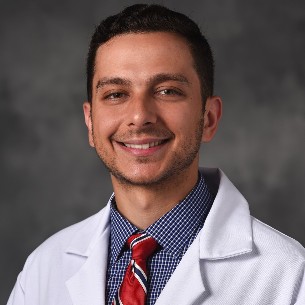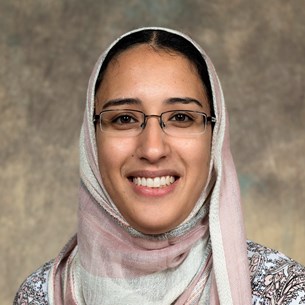 By Inas Abuali, MD, FACP, and Fawzi Abu Rous, MD
By Inas Abuali, MD, FACP, and Fawzi Abu Rous, MD
A scroll through my Twitter feed highlights the amazing accomplishments of colleagues in the field. The hashtags #MedTwitter and #AcademicTwitter are used to disseminate the latest manuscripts and national and international presentations. A one-on-one conversation with any friend in the field, however, would quickly reveal the reality of numerous rejections and abandoned projects. In recent years, some have embraced an attempt to maintain a balanced record in the form of a “CV of Failures.” While social media and academia are filled with discussions about successful endeavors, authentic and honest conversations regarding accompanying failures are imperative.
Recently, I tweeted about the hours of effort that I put into academic projects over the past two years during my fellowship, which unfortunately did not result in a tangible output. Some of my “failures” have included:
- Designing a phase I clinical trial that could not be funded nor implemented, after numerous setbacks during the COVID pandemic.
- Hours of data collection on a project that was ultimately published by another group.
- Several rejected manuscripts and a rejected grant.
- Hours of chart review on a mammoth project that finally had to be abandoned after the clinical questions were rendered insignificant after the emergence of more recent data.
This sparked a conversation with colleagues regarding common challenges at all career levels. One notable conversation was with Dr. Fawzi Abu Rous, who is in his second year of hematology oncology fellowship at the Henry Ford Cancer Institute (disclosure) and shared the following thoughts.
Dr. Abu Rous on the unique challenges as a medical trainee:
The motto of academic medicine, “publish or perish,” can be intimidating for trainees whose main goal is to match into their fellowship of interest. The fellowship match is becoming increasingly competitive due to the high number of applicants and the expectation of publication in your subspecialty choice during residency. As trainees, we often feel torn between our clinical duties, meeting graduation milestones, and working on research. We end up, mostly out of panic, getting involved in projects that do not interest us and have no clear objective. Most of these projects are eventually abandoned and do not yield any publications. With time it feels that our resumes are not reflective of our efforts, while our CV of failures continues to lengthen. After the first few manuscript rejections and unfinished projects, we start to doubt our abilities and question our goals, while what we desperately need is someone to tell us that we should use this as an opportunity to figure out what we really want. I was lucky to have that person during my residency. Although, sadly, she left this world for a better place in my second year, her words and wisdom remain with me. I matched into my dream fellowship with a few publications and posters at local conferences, and many “failures” that made me more flexible and aware of my strengths and weaknesses. Trainees should be applauded on their failures because these are opportunities that they sought out and had the courage to apply to and endure the undesirable outcomes. I encourage program directors to ask applicants about their failures and acknowledge the effort and time they dedicated to achieving their goal.
Dr. Abu Rous on #MedTwitter:
#MedTwitter is a great tool to learn, stay up to date, and connect with people from your field. Lately, it feels like a modern resume where the old rule still applies: list your accomplishments and hide your failures. It is so refreshing to see a post about a denied grant proposal or a rejected manuscript. This normalizes that failure is part of the journey and fosters a culture of support, and can help dissolve some of the comparisons and self-dissatisfaction that can be triggered by reading about everyone else’s accomplishments. Here is my advice to trainees while you scroll through your Twitter feed and read about all the accomplishments that other researchers have deservedly achieved: Try to set a long-term career goal and enjoy the journey with its ups and downs, but remember that some goals can change and others might not be reached—and that does not equal failure. Academic success is a combination of hard work, perseverance, mentorship, and luck (among many other things that I have not figured out yet...). While we have control over the first three, luck is known to favor the prepared mind.
Final thoughts
Personally, as a junior faculty member at an academic institution, the challenges of establishing a successful academic career persist. Remember that how you define “success” matters. You don’t have to fit the traditional mold, and you can pursue what is meaningful while working to fit it into the existing scholarly metrics. There are many pathways in academia and you can thrive in the right environment. Also, don’t forget that you can always make a professional pivot and embrace new roles and challenges that arise. Importantly, I am grateful for connections, such as this one with Dr. Abu Rous, that I make over shared hurdles in this career and the future collaborations that happen as a result.


Comments
David Michael Waterhouse, MPH, MD
Feb, 19 2022 12:15 PM
Well done and honest. I cannot begin to count the number of projects initiated that for whatever reason failed. This is true not only for academic medicine but community based medicine as well. Every Doc who has ever written a paper or was PI on a negative trial has talked about the "Journal of Unpublished Results." I will bet my CV would look like the New York city telephone book. True success will be found in having the "grit" to learn from and move past such failures!